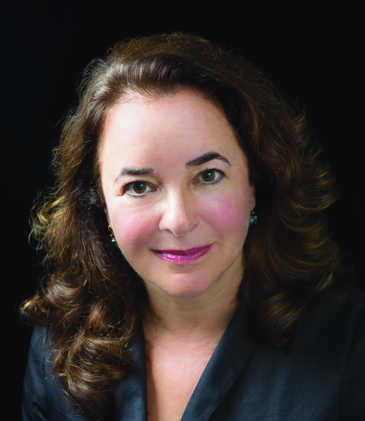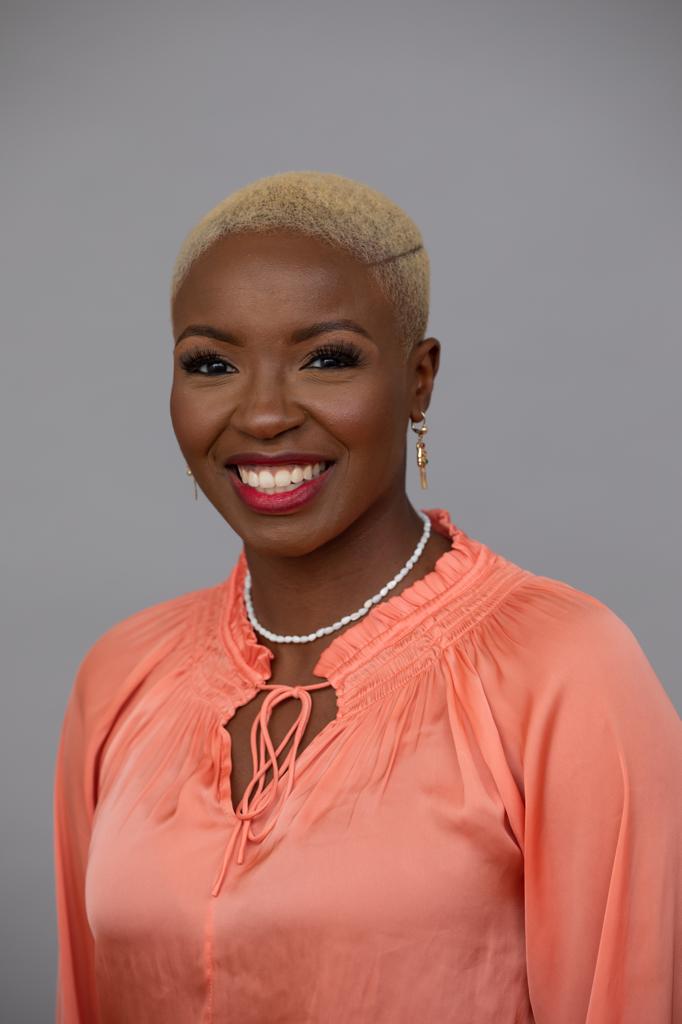Mindfulness and Compassion in Clinical Practice
Enhancing Treatment Effectiveness and Personal Wellbeing
This course is offered in-person only.
Sponsored by the University of Miami Miller School of Medicine Department of Psychiatry and Behavioral Sciences.
Mindfulness and Compassion in Clinical Practice:
Enhancing Treatment Effectiveness and Personal Wellbeing
Susan M. Pollak, M.T.S., Ed.D.
Monday, February 19, 2024 – Friday, February 23, 2024
Mindfulness meditation is currently one of the most widely researched treatment methods in mental and behavioral health. Clinical research has demonstrated its effectiveness for managing a wide range of conditions associated with emotional distress, including anxiety, depression, hypertension, irritable bowel syndrome, chronic pain, and substance abuse, as well as enhancing physical and psychological wellbeing. Research has also shown that mindfulness meditation can positively change the structure and function of the brain, reduce stress hormones, and enhance the immune system. Mindfulness (awareness of present experience with acceptance) has been intensively researched over the past 20 years and is currently considered the new generation of empirically-supported behavior therapy. Compassion, and now Self-Compassion is a cutting-edge of mindfulness research and training. Although scientific research on meditation can be traced to the early 1970’s, the relatively recent surge of research on mindfulness has left many medical and mental health professionals curious, and perhaps unclear, about what exactly is meant by mindfulness in the present context, how to practice and teach it their patients, and the evidence base to support it. The purpose of this course is to offer participants an up-to-date review of the theory, research, and practice of mindfulness in health care (including its application to the practice of psychotherapy), to increase the effectiveness of behavioral treatment, enhance the wellbeing of clinicians, and cultivate positive attitudes associated with patient care.Upon completion of this activity, participants will be able to:
- Explain how mindfulness and acceptance-based treatment is grounded in empirically-supported psychotherapy;
- Discuss the mechanisms of action in meditation that appear to underlie positive, therapeutic change, such as attention regulation, emotion regulation, and self-compassion;
- Describe new research findings on mind/brain training through mindfulness meditation;
- Identify the four main forms of meditation— concentration, mindfulness, compassionate acceptance and equanimity—and know when to apply them in clinical settings;
- Discuss the ways mindfulness can be distorted when it enters the mainstream;
- Identify common mechanisms in psychological disorders and how mindfulness practices can alter them;
- Customize meditation practices for individual patients, i.e., those with anxiety, depression, and trauma, and stress-related medical disorders;
- Determine whether Mindful Self Compassion can help those with chronic pain;
- Explain how mindfulness and compassion can help with the stress of parenting;
- Apply the practices and principles of meditation to enhance the therapeutic relationship and personal wellbeing.
| Monday, February 19 | |
| 8:30 a.m. – 9:00am | Registration |
| 9:00am – 10:15am | Welcome; Why are you here meditation? Brief introductions. |
| 10:15am – 10:30am | Break |
| 10:30am – 12:15pm | Overview of Mindfulness. Definitions, types of meditation, history in clinical practice. Why does Mindfulness work? Neuroplasticity. Brain Mechanisms. Default Mode Network. Future Direction of Research. History of Mindfulness in Clinical Practice. Q&A. |
| Tuesday, February 20 | |
| 9:00am – 10:15am | Using Mindfulness in Treatment. Overview: Where do we start? Not one size fits all. The Big picture. Key Questions. Mechanisms of Action. Focused Attention, Mindfulness, Compassion. Self-Compassion. Equanimity. Benefits. Your own practice. Q&A. |
| 10:15am – 10:30am | Break |
| 10:30am – 12:15pm | (cont.) Using Mindfulness in Treatment. Overview: Where do we start? Not one size fits all. The Big picture. Key Questions. Mechanisms of Action. Focused Attention, Mindfulness, Compassion. Self-Compassion. Equanimity. Benefits. Your own practice. Q & A. |
| Wednesday, February 21 | |
| 9:00am – 10:15am | A deep dive. Concentration. Practices. Sound, Touch Point, Breath. Open Monitoring. The Body. Walking Meditation. Emotions. Labeling. Finding a Pattern. Q&A. |
| 10:15am – 10:30am | Break |
| 10:30am – 12:15pm | (cont.) A deep dive. Concentration. Practices. Sound, Touch Point, Breath. Open Monitoring. The Body. Walking Meditation. Emotions. Labeling. Finding a Pattern. Q&A. |
| Thursday, February 22 | |
| 9:00am – 10:15am | Loving, Kindness and Compassion. LKM Practice. Overview. For oneself, for others. Self-compassion. Practice. Compassionate Being. Equanimity. Mountain Meditation. Q&A. |
| 10:15 – 10:30am | Break |
| 10:30am – 12:15pm | (cont.) Loving, Kindness and Compassion. LKM Practice. Overview. For oneself, for others. Self-compassion. Practice. Compassionate Being. Equanimity. Mountain Meditation. Q&A. |
| Friday, February 23 | |
| 9:00am – 10:15am | Putting it all together. Working with specific populations, working with Anxiety, Depression, Trauma, etc. Self-compassion for Parents, for Pain, for Covid, etc. Q&A. |
| 10:15am – 10:30am | Break |
| 10:30am – 12:15pm | (cont.) Putting it all together. Working with specific populations, working with Anxiety, Depression, Trauma, etc. Self-compassion for Parents, for Pain, for Covid, etc. Q&A. |
| 12:15pm | Adjourn |
SEMINAR FORMAT
Meets Monday – Friday: 9:00 a.m. – 12:15 p.m.
Please note coffee is available during registration and a continental breakfast will be served at 10:15 a.m. daily.
SPECIAL REQUESTS
If special arrangements are required for an individual with a disability to attend this conference, contact Kim Miele at psychcme@med.miami.edu at least 15 days prior to the conference.
TUITION
Physician, Nurse Practitioner, and Other Health Professional fees:
Registration fee is $1,095.
Residents, Fellows in Training, and Full-time Student fees are $695.
The fee for taking a second week is $750—and the processing fee (non-refundable) is $10. Registration by credit card (Visa, MasterCard, or American Express) or check can be made through the University of Miami secure registration system.
REFUND POLICY
Refunds, less an administrative fee of $100, will be issued for all cancellations received two weeks prior to the start of the course. Refund requests must be received by email. No refund will be issued should cancellation occur less than two weeks prior. “No shows” are subject to the full course fee, and no refunds will be issued once the conference has started.
ONLINE INFORMATION
To register or view activity information online, visit: https://bit.ly/45TcgYT
ELECTRONIC SYLLABUS
We provide all attendees with completely free access to all slide presentations in digital PDF format prior to the conference. This is an environmentally friendly alternative and helps keep costs lower for all attendees. The e-syllabus will be available for 30 days after the conference.
You can purchase a printed copy at the time of online registration for $35 for Dr. Pollak’s course and $55 for all other winter courses.
Please note we will not have hard copies of the syllabus available for purchase at the conference.
WEEK LONG SEMINARS
Meets Monday-Friday: 9:00 a.m.- 12:15 p.m.
Please note coffee is available during registration, and a continental breakfast will be served at 10:15 a.m. daily.
PHYSICIAN CREDIT
The University of Miami Leonard M. Miller School of Medicine designates these live winter activities for a maximum of 15 AMA PRA Category 1 Credit™. Physicians should claim only the credit commensurate with the extent of their participation in the activity.
The Royal College of Physicians and Surgeons of Canada recognizes conferences and workshops held outside of Canada that are developed by a university, academy, hospital, specialty society or college as accredited group learning activities.
Through an agreement between the American Medical Association and the European Union of Medical Specialists, physicians may convert AMA PRA Category 1 Credit™ to an equivalent number of European CME Credits® (ECMECs®). Information on the process of converting AMA PRA Category 1 Credits™ to ECMECs® can be found at: www.eaccme.eu.
PSYCHOLOGISTS
The University of Miami Leonard M. Miller School of Medicine is approved by the American Psychological Association (APA) to sponsor continuing education for psychologists. The University of Miami Leonard M. Miller School of Medicine maintains responsibility for this program and its content. 15.00 CE credits will be awarded to psychologists for attendance at these seminars.
NURSE PRACTITIONERS AND REGISTERED NURSES
These activities have been submitted to ANA Massachusetts for approval to award contact hours. ANA Massachusetts is accredited as an approver of continuing nursing education by the American Nurses Credentialing Center’s Commission on Accreditation. For more information regarding contact hours, please email psychcme@med.miami.edu
- Psychopharmacology: A Master Class, Charles B. Nemeroff, M.D., Ph.D.
- Cognition and the Aging Brain, Elizabeth Crocco, M.D., Rosie Curiel, M.D., Phillip Harvey, Ph.D., and David Loewenstein, Ph.D.
- Essential Psychopharmacology, 2024: Practice and Update Barbara Coffey, M.D., M.S., Philip Harvey, Ph.D., Luca Pani, M.D., and Dhruti Patel, M.D.
Mindfulness and Compassion in Clinical Practice: Enhancing Treatment Effectiveness and Personal Wellbeing, Susan M. Pollak, M.T.S., Ed.D. meets the specifications of the Board of Registration in Nursing (244 CMR)
SOCIAL WORKERS
Application for social work continuing education credit has been submitted. Please contact Kim Miele at psychcme@med.miami.edu with any questions.
INQUIRIES
By phone at 941-932-2671, Monday-Friday, 9 A.M. to 4 P.M. (EST), or by email at psychcme@med.miami.edu
DISCLOSURE AND CONFLICT OF INTEREST MITIGATION
The University of Miami Leonard M. Miller School of Medicine has assessed conflict of interest with its faculty, authors, editors, and any individuals who were in a position to control the content of this CME activity. Any identified relevant conflicts of interest have been mitigated.
The University of Miami Leonard M. Miller School of Medicine planners, content reviewers, and editorial staff disclose no relationships with ineligible entities. All the relevant financial relationships for these individuals have been mitigated.
ABMS/ACGME COMPETENCIES
All seminars are designed to meet the following American Board of Medical Specialties (ABMS)/ Accreditation Council for Graduate Medical Educational (ACGME) competencies:
- Patient Care and Procedural Skills
- Medical Knowledge
- Practice-based Learning and Improvement
- Interpersonal and Communication Skills
 |
Susan Pollak, M.T.S., Ed.D.Co-founder, senior teacher and advisor at the Center for Mindfulness and Compassion, Cambridge Health Alliance, Harvard Medical School. Dr. Pollak was the President of the Institute for Meditation and Psychotherapy from 2010-2020. She is the co-editor of The Cultural Transition and contributing author to Mapping the Moral Domain; Evocative Objects; and Mindfulness and Psychotherapy. Dr. Pollak co-authored Sitting Together: Essential Skills for Mindfulness-Based Psychotherapy with Thomas Pedulla and Ronald Siegel, of Sitting Together: Essential Skills for Mindfulness-Based Psychotherapy. Her most recent book is Self-Compassion for Parents: Nurture Your Child By Caring for Yourself. |
 |
Rhoda Moise, Ph.D., CYTResearch Assistant Professor in the Center for Translational Sleep and Circadian Sciences housed in the Department of Psychiatry and Behavioral Sciences at the University of Miami Miller School of Medicine. She earned her B.S. with honors in Biobehavioral Health from the Pennsylvania State University, focusing on global chronic disease prevention and control. She also holds a Ph.D. in Prevention Science and Community Health from the University of Miami. Additionally, she completed a 200-hour certification to teach Ancient Egyptian yoga. To learn more about her “soulful & scientific” work, please visit rhodamoise.com! |
 LOCATION
The Grand Beach Hotel Miami Beach, Florida, is in an amazing location overlooking more than 200 feet of beautiful white sandy tropical beaches on the Atlantic Ocean. Built-in 2009 and completely renovated in 2018, our modern Miami Hotel offers the highest levels of luxury and comfort. Our leisure facilities include two hot tubs, a state-of-the-art gym with unbeatable panoramic sunset views, as well as three different swimming pools, including two beach-level family pools and our top-floor tranquility pool (adults only), offering something for every guest.
LOCATION
The Grand Beach Hotel Miami Beach, Florida, is in an amazing location overlooking more than 200 feet of beautiful white sandy tropical beaches on the Atlantic Ocean. Built-in 2009 and completely renovated in 2018, our modern Miami Hotel offers the highest levels of luxury and comfort. Our leisure facilities include two hot tubs, a state-of-the-art gym with unbeatable panoramic sunset views, as well as three different swimming pools, including two beach-level family pools and our top-floor tranquility pool (adults only), offering something for every guest.



Miami Grand Beach Hotel, 4835 Collins Avenue, Miami Beach, FL 33140 To reserve your hotel room, click: https://bit.ly/3qUSAos Group Code: 2402DPBS Or call 1-305-538-8666 and mention you are with the University of Miami Miller School of Medicine Winter Symposiums. You can also email Oscar Romero at oromero@grandbeachhotel.com INQUIRIES Please email Kim Miele at psychcme@med.miami.edu or call 941.932.2671, 10 a.m.– 4 p.m. (EST) Monday-Friday. THINGS TO DO IN MIAMI
| Everglades Miami Double Decker City Tour Miami Zoo Miami Aquarium Miami Heat Game Miami Dolphins Game Miami Boat Show South Beach Food and Wine Festival |
| PGA National Resort Trump National Doral Miami Normany Shores Golf Club Miami Shores Country Club JW Marriot Miami Turnberry Resort & Spa – Soffer Course Miami Beach Golf Course |
| Flamingo Park Margaret Pace Park Crandon Park Tennis Center Fisher Island Club Morningside Tennis Center |
| Nobu Miami Cecconi’s Miami Ocean Social by Chef Tristan Epps Prime 54 Donna Mare Trattoria Santorini – Best Happy Hour in Town |
| Little Havana Food Tour Perez Art Museum Sailing Adventure Vizcaya Museum and Gardens Frost Science Museum and Aquarium Fairchild Tropical Botanical Garden Bayside Marketplace |
BONUS SESSION: Egyptian Yoga with Rhoda Moise, Ph.D., CYT
Two 1-hour Egyptian Yoga Sessions: Tuesday, February 20 from 8 a.m. - 9 a.m. and Thursday, February 22 from 8 a.m. - 9 a.m.
Egyptian Yoga is a practice based on the culture of ancient Egypt (traditionally known as Kemet). This system cultivates the highest aspect of consciousness through making brilliant, uncommon connections, such as using yoga to bridge our physical and spiritual realities. By merging both soulful and scientific knowledge, this posture and breathwork-focused practice helps you to increase awareness of the mind and body connection; decrease depression, stress, and anxiety; cleanse and condition the internal systems; and improve strength and stamina.
- Monday, February 19, 2024
- Tuesday, February 20, 2024
- Wednesday, February 21, 2024
- Thursday, February 22, 2024
- Friday, February 23, 2024
| 8:30 a.m. – 9:00 a.m. | Registration |
| 9:00am – 10:15am |
|
| 10:15am – 10:30am | Coffee Break |
| 10:30am – 12:15pm |
|
| 9:00am – 10:15am |
|
| 10:15am – 10:30am | Coffee Break |
| 10:30am – 12:15pm |
|
| 9:00am – 10:15am | The Management of Treatment Resistant Depression: The Art and the Science: Management of treatment resistant depression with a focus on psychopharmacological treatments; review of STAR*D study and other evidence based clinical trials; ECT and TMS. |
| 10:15am – 10:30am | Coffee Break |
| 10:30am – 12:15pm | Ketamine and Esketamine: The Amazing, The Good, The Bad, and The Ugly A discussion of the data on the safety and efficacy of ketamine and esketamine in the management of treatment resistant depression |
| 9:00am – 10:15am |
|
| 10:15am – 10:30am | Coffee Break |
| 10:30am – 12:15pm |
|
| 9:00am – 10:15am |
|
| 10:15am – 10:30am | Coffee Break |
| 10:30am – 12:15pm |
|
| 12:15pm | Adjourn |






